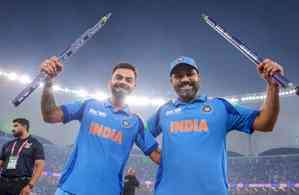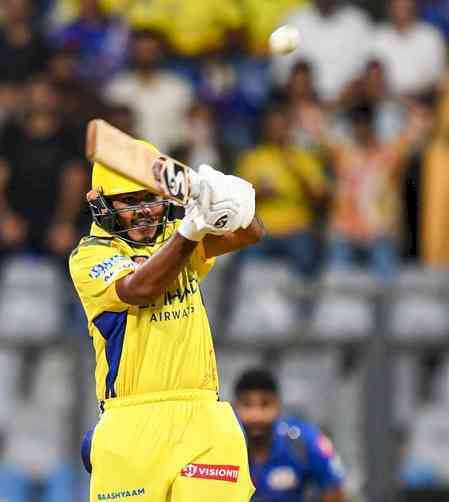Being the first World Cup to be hosted in winter raises stress levels for players
Even before the start of the mega sporting spectacle in Qatar, the FIFA World Cup 2022 has already made it to the history books for its unique achievements.

Mumbai, Nov 19 (IANS) Even before the start of the mega sporting spectacle in Qatar, the FIFA World Cup 2022 has already made it to the history books for its unique achievements.
It is the first World Cup to be organised in the Arab world, the first to be held in winter and the second one in Asia after the 2002 edition jointly hosted by South Korea and Japan. The Qatar 2022 World Cup starts on November 20 and will end on December 18.
It is also one of the most expensive World Cups as Qatar had to build all stadiums from scratch, creating a sporting oasis in the desert, fully air-conditioned indoor stadiums at the cost of more than $6.5 billion. The hosts have also created new infrastructure for local fans and the millions of foreign supporters that are expected to travel to the country.
The total cost of hosting the World Cup is reportedly around $220 billion -- the biggest amount splurged by any of the organisers for the FIFA World Cup as the 2014 edition in Brazil cost $11.5 billion while the last edition in Russia in 2018 cost about $14 billion.
More than a unique experience, the competition will be a huge challenge for the players as the World Cup will be held in Winter -- when all the club leagues around the world except the English Premier League take a month-long break.
With the 29-day Qatar World Cup being played during what would have been their winter break, the footballers will have a busy schedule post the World Cup as they will get back with their respective clubs dead tired from the fatigue of training and playing for 5-6 weeks, frequent travel and battling niggles and injuries.
Fatigue factor, limited preparation time
All the World Cups so far have been held in the summer months -- either in the May-June period or June-July and the players get a decent break after the end of the club leagues and get at least a decent amount of preparation time. This time, they go into the event with just about one or two weeks of preparations.
They will also reach Qatar quite tired as most of them were appearing for their clubs till last Sunday.
Many experts feel that a lot of players will return to their clubs with injuries caused by the wear and tear caused by a tournament of this nature. Even if they may not return from Qatar with injuries, the vigor of playing continuous football in the high temperatures expected despite it being Winter in the desert country is expected to have a huge impact on the players. This will not only affect the remaining part of the season but also the next one in 2023-24.
The Qatar 2022 World Cup will introduce new rules and new technology. The five substitution rule will be introduced in this World Cup -- which makes the game seem a bit different from that at the previous World Cups.
With FIFA and many leagues allowing extra substitutes during the Covid-19 pandemic, the players and spectators may not find it too different. With extra substitutions allowed, the 32 qualified nations are allowed to have 26-player squads instead of the 23 that were allowed in the past World Cups.
The 2018 World Cup marked the debut of the Video Assistant Referee (VAR) making the appearance of video technology for the first time at the World Cup -- a technology that has now become an integral part of the game of football despite its imperfections. The VAR that will be used in the World Cup will be a bit more evolved than the one used four years ago.
The 2022 World Cup will introduce another new technology -- the 'semi-automated offside technology'. In this technology, a sensor called an �inertial measurement unit sensor', will be placed inside the ball which will help detect its position relative to the players and send real-time data for the referee to consult. This technology will also collect and track the player's position during a possible offside chance.
The VAR and 'semi-automated offside technology' will also help detect whether the ball has crossed the goalline.
These technologies may not prevent controversies over offside or ghost goals, but fans will still have a lot of things to discuss about and remember Qatar 2022 World Cup for a long time to come. Whether these technologies, rule changes and compact schedule will further enrich the game is yet to be seen but are sure to make it worth remembering and discussing for years.


 IANS
IANS 










